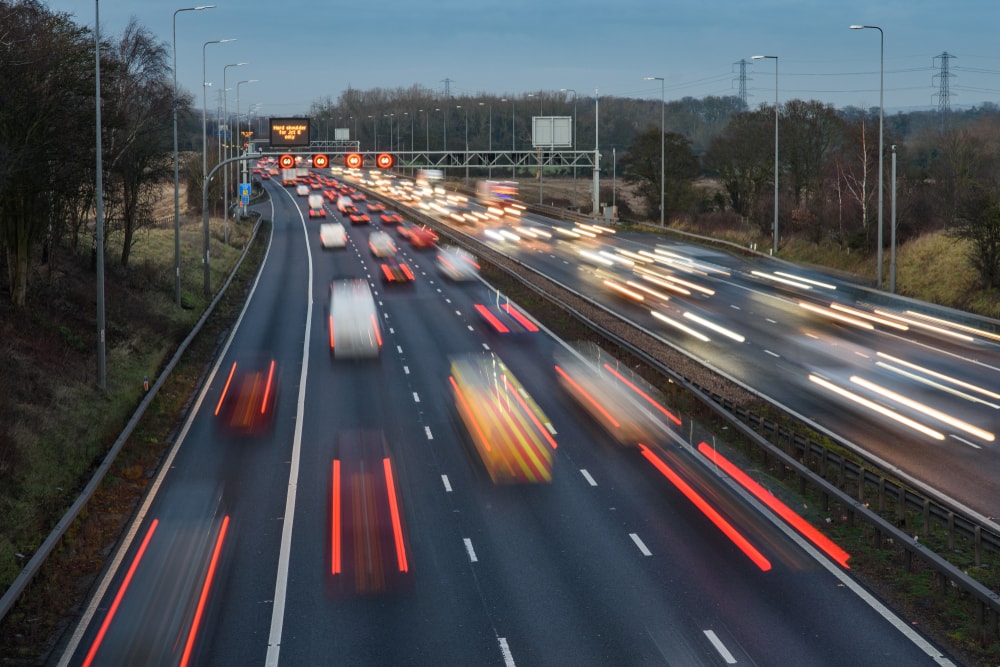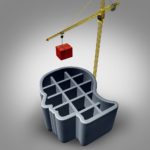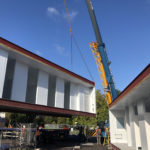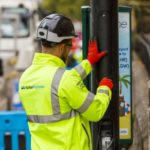Sector - Sustainability
Paving the way for innovation

The construction industry, especially road works and resurfacing, has never had the most squeaky-clean of reputations. Despite the crucial work being done to maintain infrastructure and networks, the public often associates it with the smell of boiling tarmac, the sound of drills and cities choked with congestion.
In this article, we speak with Bruce Spencer-Knott, Managing Director of Minster Surfacing, about pioneering use of cleaner, green technology. Based in Lincoln, Minster Surfacing has taken the reins on two innovative solutions to overcome a range of challenges that surfacing and resurfacing roads brings.
Cutting emissions and costs
Minster Surfacing is one of the first in the country to be using Foambase technology, which enables them to recycle old surfaces to create new road material. The company is also trialling new technology SmoothRide, which means roads no longer have to be closed before repair works begin, using the latest 3D scanning technology to accurately measure roads so they can be laid quickly, smoothly and at a higher quality than ever before.
Foambase technology has saved thousands of tonnes of material from going to landfill which has cut carbon emissions and saved the taxpayer money. Up to 85% of roads across the country contain coal tar, which is deemed hazardous and can cost up to £100 per tonne to send to landfill. Crews are able to convert removed material into Foambase and binder course products, creating a safe and durable product that can be used again and again. The production of Foambase produces 32% less CO2 than traditional hot asphalt and it can be laid using the same tools and techniques.
Quick, accurate and innovative
SmoothRide technology, developed by TopCon is a state-of-the-art system which is already delivering excellent results. The technology uses 3D scanning equipment that’s fitted to vehicles and can be used while travelling at up to 50mph. The scanners can quickly and accurately scan roads to create detailed maps that show the width at every point of a road as well as every lump and bump on the surface.
Operators then uses specialist software to create instructions for the machinery so when a road is laid, a smooth finish is guaranteed.
Normally, teams have to measure roads manually using measuring tape which they stretch over the road or using tripod-mounted lasers which have to be operated from the roadside. Often, this requires a road to be closed while the measurements are being taken and the measurements are only accurate to within 10mm, meaning that teams often have to use more material than is needed to make up for the margin of error. The new SmoothRide technology is accurate to within 1.5 mm, which makes the whole process far more efficient. It also means that roads can be measured from the safety of a vehicle’s passenger seat in normal traffic conditions.
GPS technology is also helping us and other firms to reduce waste. When deliveries of material arrive at work sites, teams can scan unique QR codes that are given to the drivers and the exact location where the material is used is logged and reported along with the temperature of the material as it gets used. This means that if a fault is detected, teams can identify and replace the surface in the areas affected without having to remove surfaces that are up to standard, thereby reducing waste.
Impressively, GPS data is also recorded when measurements are made. This means that semi-automated machinery can follow the instructions and adapt the thickness and width of the material they lay at exactly the right point along a road. This eliminates guesswork and human error, enabling teams to complete their work quicker, more efficiently, more safely and with less disruption for road users than ever before.
Changing perceptions
Working with Lincolnshire County Council and Kier Group, Minster’s teams can often be spotted around Lincolnshire using these new technologies on the county’s roads as well as laying new surfaces at housing and commercial developments.
Firm’s like Minster are also trying to promote innovation across the entire supply chain by investing in machinery from manufacturers that are willing to incorporate the latest innovations into their products. If more of the industry follows suit, this will encourage manufacturers to invest more in new technologies, which in turn improves the industry from the top down.
“By embracing technology,” says Bruce, “we’re contributing towards making the industry cleaner, safer and more sustainable. Importantly, we’re also changing the perceptions of people who think of road surfacing and construction as dirty, pollutive industries.
“We estimate that we’re currently able to recycle around 50% of the material we remove from roads, and we have plans to increase this. By making the most of innovations available, we’re proving that it’s possible to dramatically reduce the carbon footprint of our work and improve our service as a result.”
If you would like to read more articles like this then please click here.
Related Articles
More Sustainability News
- Major boost for mine water heat revolution
29 Jul 25
New study shows 87% of coalfield boreholes succeed.
- Plan to kickstart onshore wind revolution
17 Jul 25
Onshore wind is set to accelerate over the second half of the decade.
- Homes England supports Greencore Homes with new sustainable homes
16 Jul 25
Homes England will provide funding to support the delivery of Milton Heights.






